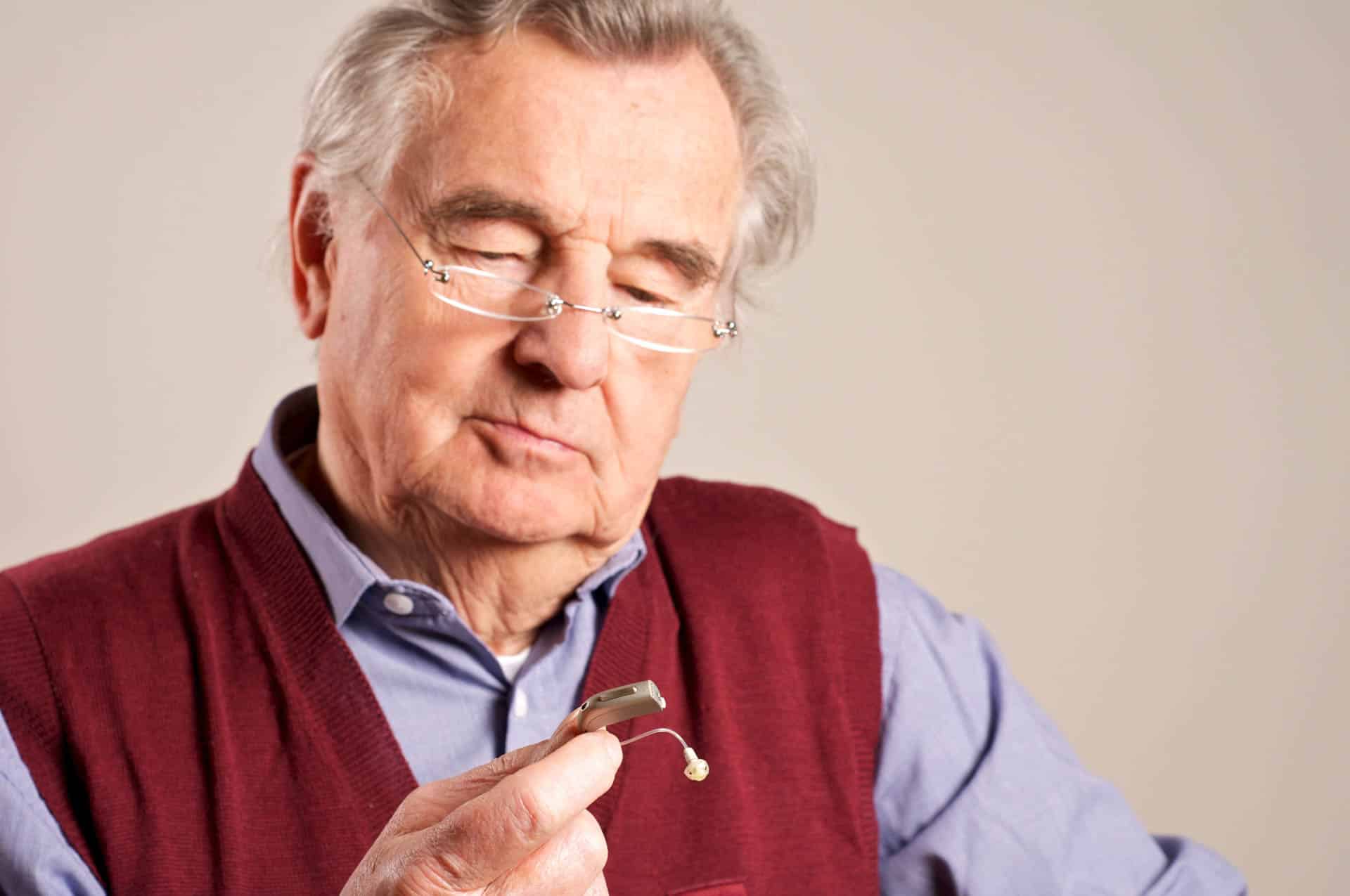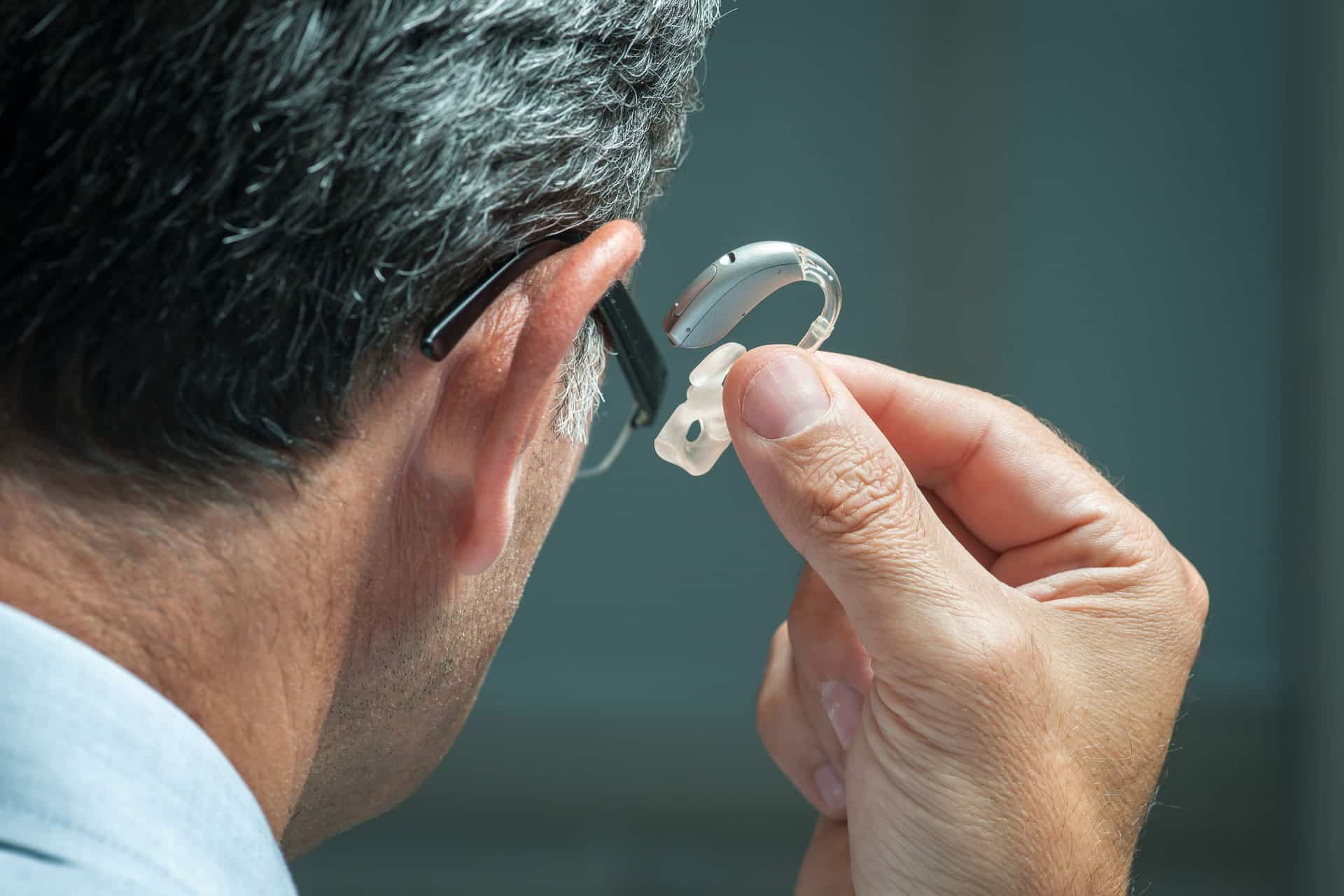Delivery in 2-3 working days
Cleaning and maintenance of hearing aids: Helpful tips
Hearing aids are highly technological yet delicate devices that require regular and careful cleaning and maintenance to perform effectively. In the following guide, you will find a number of helpful tips and methods to help you maximize the life and functionality of your hearing aid.
Why is care and maintenance so important for hearing aids?
Our ear is an active and living organ that continuously produces cerumen, popularly known as earwax. Over time, this natural secretion can accumulate in the earmolds of the hearing aid, leading to unwanted contaminants and debris that can potentially damage the device. In addition, moisture and sweat - natural byproducts of our daily activities - can also penetrate the device and cause damage that impairs its operability. Therefore, performing regular and thorough care and maintenance on your hearing aids is absolutely essential for maintaining their optimal performance and lifespan.

Basic cleaning of hearing aids: Preserve the effectiveness of your hearing aids
Basic cleaning of your hearing aid is an essential part of maintenance that helps ensure long-term effectiveness.
Instructions for efficient removal of earwax
Earwax, or cerumen, can build up in the earmolds of your hearing aids and affect their performance. Therefore, removing earwax is an essential step in caring for your hearing aids.
To remove dirt and debris, including earwax, from the earpieces and microphone inputs, you should use a special cleaning brush. It is important to perform this procedure with great care to avoid damaging the delicate device.
For earmolds, cleaning tablets can be a helpful option. These products are designed to effectively remove stubborn impurities. It is essential that you always follow your hearing care professional's instructions when doing so to ensure that you do not unintentionally damage the device.
Hearing aid battery compartment care tips
The battery compartment of your hearing aid can be damaged by moisture and dirt and cause the device to malfunction. Here are some measures you can take to keep the battery compartment clean and functional:
Start by removing the batteries from the compartment. Then use a dry cloth to clean the inside of the compartment. Make sure it is completely dry before reinserting the batteries.
It is also important to keep the battery compartment closed at all times when the hearing aid batteries are not in use. This helps prevent moisture and dirt from entering the compartment, which can positively affect the performance and life of your hearing aids.
Protecting your hearing aids from moisture and heat
Moisture and excessive heat can damage the sensitive electronics in your hearing aids and significantly shorten their life. Therefore, it is important that you take appropriate steps to protect your hearing aids from these elements.
An effective way to prevent moisture damage is to use a dry box. These devices are specifically designed to remove moisture from your hearing aids and keep them safe. Regular use of a dry box can help extend the life of your hearing aids and maintain their optimal performance.
Excessive heat and direct sunlight can also be harmful to your hearing aids. Therefore, you should always take care to protect your hearing aids from these conditions. Never leave your hearing aids in a hot car or in direct sunlight. If possible, keep them in a cool, dry place to ensure the best possible environment for their storage.
Protection of your hearing aids from dirt
Dirt and other contaminants can impair the function of your hearing aids and even damage them permanently. Therefore, it is important that you take proactive steps to protect your hearing aids from these potential hazards.
It is recommended to use a special cleaning cloth to wipe your hearing aids daily. This will help remove dust, dirt and other particles that may accumulate on the devices during the day. Be sure to thoroughly clean all parts of the device, including the earpieces, battery compartment and microphones, when doing so.
You should also make sure that your hearing aids do not come into contact with hairspray or other cosmetic products. These products can leave a sticky residue that can damage the sensitive electronics of the hearing aids. If you use such products, remove or cover your hearing aids to prevent them from coming into contact with these substances.
Professional maintenance by a hearing care professional
Despite your careful and regular cleaning at home, it is important to have your hearing aids checked and serviced by a professional hearing care professional at least once a year. This specialized service offers several benefits that can help optimize performance and extend the life of your hearing aids.
A trained hearing care professional has the expertise and specialized equipment to remove stubborn dirt and debris that can get lodged deep in parts of the device that are difficult for you to access. This includes cleaning the sound tube, an important element of the hearing aid that conducts sound from the hearing aid electronics into your ear.
In addition to thorough cleaning, hearing care professionals can also perform necessary repairs. From minor adjustments to major repairs, these professionals can ensure your hearing aids are functioning optimally and meeting your specific hearing needs.
Another important aspect of professional maintenance is the replacement of the wax filter. This filter protects your hearing aid from earwax and other contaminants that could affect the functionality of the device. Regular replacement of this filter by a professional will ensure that your device continues to be protected from contaminants.
Final tips for the care and maintenance of hearing aids
Proper care and maintenance of your hearing aids is critical to ensure optimal performance and extend the life of these important devices. Our final tips summarize the most important steps to follow in your daily routine to ensure the best hearing experience:
- Clean your hearing aids regularly with a cloth and brush: removing dirt and debris is an important aspect of hearing aid care and helps maintain clear sound quality.
- Avoid contact with water, heat and contaminants: Extreme conditions and environments can affect the sensitive components of your hearing aids and reduce their performance.
- Store your hearing aids in a dry box: These devices can draw excess moisture out of hearing aids and protect them from potential damage caused by humidity or heat, which is especially important if you live in a humid environment or have sweating episodes.
- Have your hearing aids checked by a hearing care professional at least once a year: Annual professional maintenance can help identify and correct minor problems before they develop into major difficulties.



